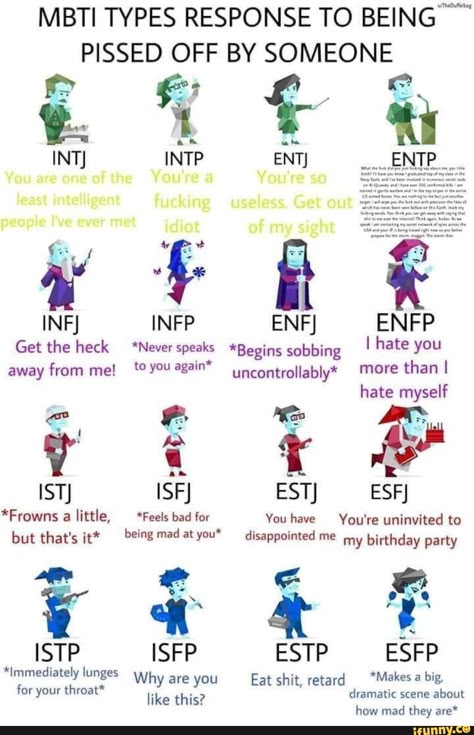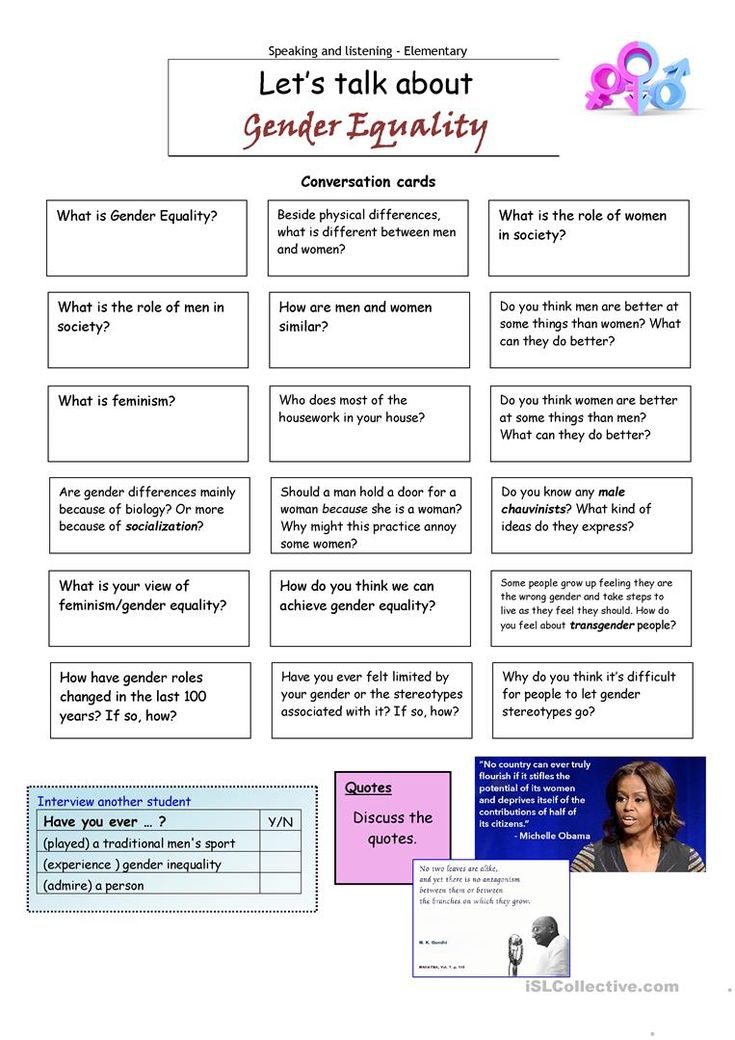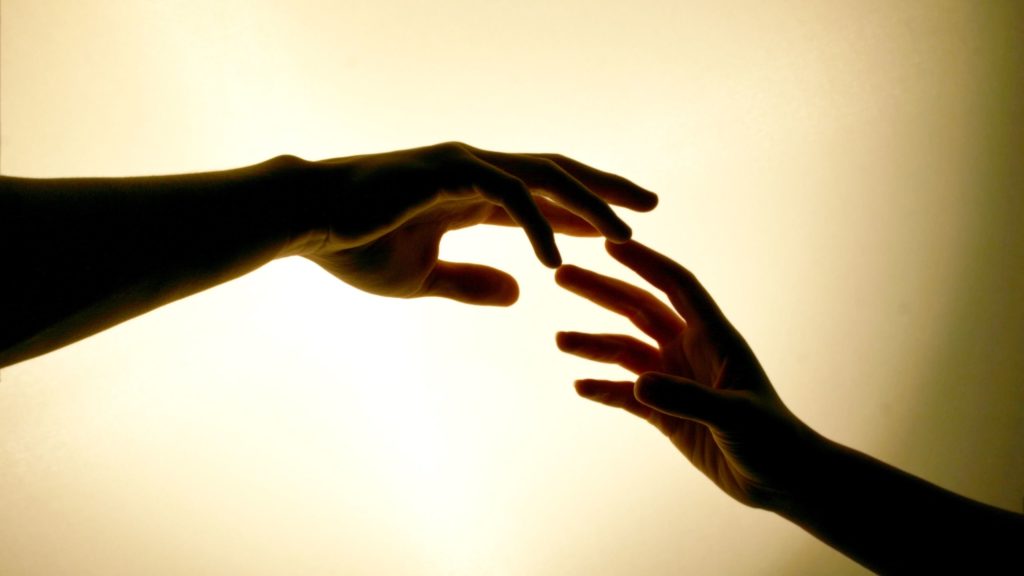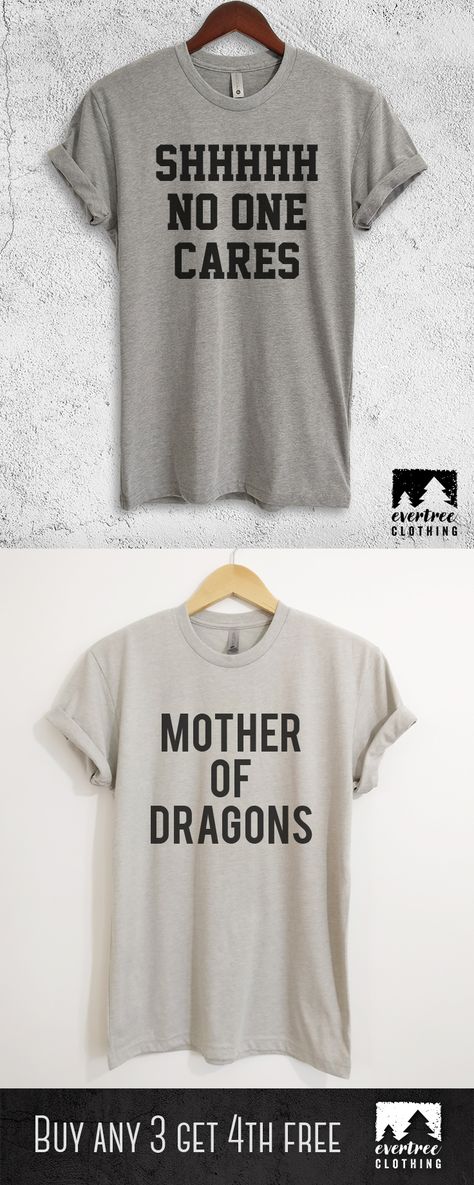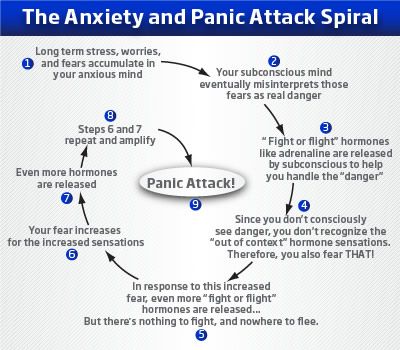Mbti personality types and zodiac signs
Which Myers Briggs Type is Closest to your Zodiac Sign?
Did you know that Carl Jung—who first identified the four cognitive functions Myers and Briggs later developed in their personality work—Sensation (S), Intuition (I), Thinking (T), and Feeling (F)—was not only interested in typology, but also in astrology?
In fact, Jung defined astrology as “the science of antiquity” and concluded that astrological insights provided an important “psychological description of [a person’s] character.”
Unlike personality type assessments, we can’t scientifically prove astrology. However, it can still be an interesting self-development tool for those who trust that the position of the skies can have an effect on our personalities and behavior.
Curious to know which Myers and Briggs type is closest to your zodiac sign? Here are our best guesses.
Aries: ESTP, ISTP
Known for their energetic attitude and sense of adventure, Aries has much in common with both ESTP and ISTP personalities. Like ESTPs, Aries live in the here-and-now and are eager to tackle new challenges that come their way. They’re very action-oriented and tend to become bored quickly.
What’s more, people with this zodiac sign personality show the flexibility and problem-solving nature of the more reserved ISTP. In fact, both ESTPs and ISTPs share with Aries an inclination and enthusiasm for learning new things through hand-on experience.
Taurus: ISFJ, ISFP
Famed for having a bit of a stubborn streak, people with the Taurus sign are, in many ways, similar to ISFX personality types. Like the Introverted ISFJ and ISFP types, Tauruses can be hard to get to know, but they’re lovingly devoted to their closest relationships.
In addition, Tauruses know that slow and steady wins the race. You can see that in their irreproachable sense of commitment and perseverance.
Gemini: ESFP, ENTP
The joyful and communicative Gemini has a lot in common with both ESFPs and ENTPs. After all, these personalities feel best when they have a chance to lift other people up with their quick wit and charming optimism.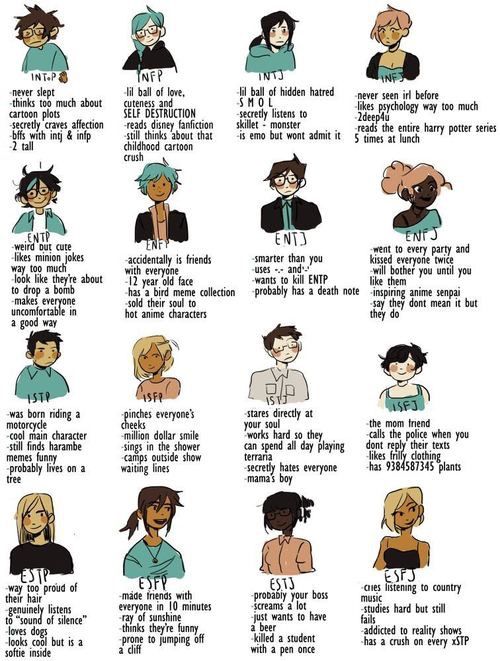
Similar to their ENTP peers, Gemini are incessantly curious and seek to analyze and comprehend the world around them. They love to be surrounded by intellectually stimulating people, but sometimes have little tolerance for those who can’t keep up. There could be some overlap with INTPs here, too.
Cancer: INFJ, ENFJ
Caring and empathetic, Cancers share similar traits to XNFJs. They tend to be very emotionally invested in their relationships, and will go to the ends of the earth to prove their loyalty to their friends and loved ones.
Both ENFJ and INFJ types might identify with the sensitivity of Cancers. These types strive to bring kindness into every interaction and can have intense responses to art and nature. Cancers are also typically intuitive, which allows them to read (and sometimes misjudge) the people around them.
Leo: ESFP, ENTJ
If there’s someone who knows how to light up a room, it’s a Leo! Despite sometimes appearing to be vain or ego-driven, like their ESFP and ENTJ counterparts, Leos are actually very generous and emotionally supportive towards their loved ones.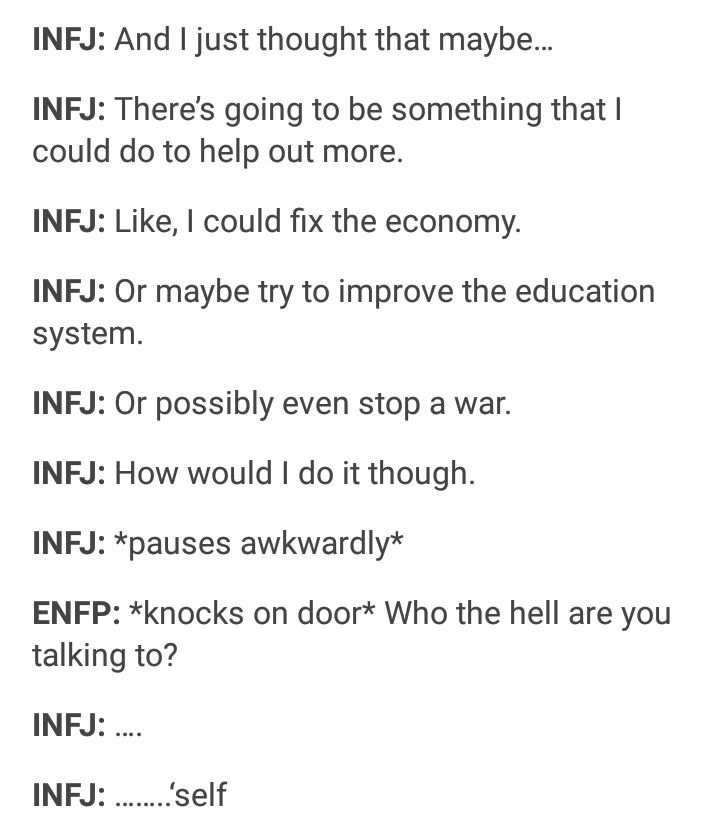
In fact, these gregarious types may be comfortable in the spotlight, but they also know when to step back and let others take the lead. The balanced Leo loves seeing others succeed.
Virgo: ISTJ, ESTJ
Down-to-earth and meticulously organized, Virgo is closest to XSTJ personalities. As Sensor types, both ISTJs and ESTJs thrive on logical endeavors and focus on getting things done in the most efficient way.
What's more, a balanced Virgo can also be level-headed in situations where other types could become easily overwhelmed. They are definitely someone you’ll want by your side in times of crisis.
Libra: ESFJ
Friendly and warmhearted, Libras share some characteristics with the ESFJ personality type. Like ESFJs, Libras are socially considerate, but they also love being appreciated by other people. In fact, in their effort to accommodate, and make others feel comfortable, Libras may sometimes avoid conflict at all costs.
Scorpio: INTJ
Often described as manipulative and mysterious, Scorpios get a bad rep.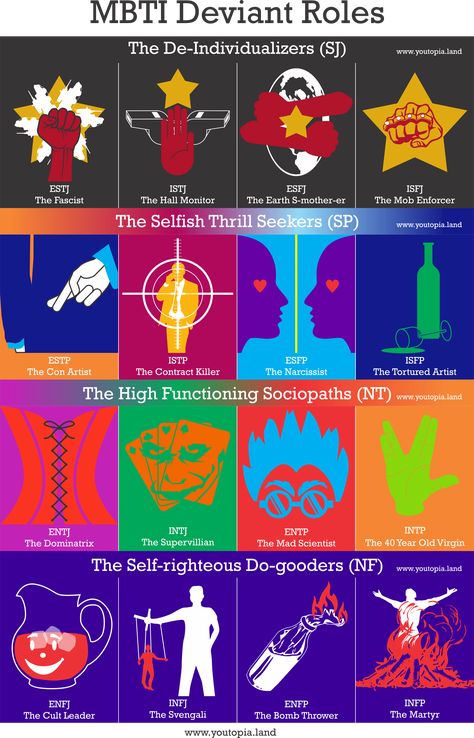 The reality? They’re just true to themselves. Like INTJ personalities, Scorpios are usually introspective and prefer to keep their feelings to themselves. Yet, they don’t shy away from conflict and can surprise others with their brutal honesty.
The reality? They’re just true to themselves. Like INTJ personalities, Scorpios are usually introspective and prefer to keep their feelings to themselves. Yet, they don’t shy away from conflict and can surprise others with their brutal honesty.
Similar to their INTJ counterparts, Scorpios are very loyal to their loved ones, so once their trust is broken, it can be lost forever. If there’s something to admire in the Scorpio personality, it is how they stay true to their values, no matter what others might say or think.
Sagittarius: ENTP, ENFP
The fun-loving Sagittarius will probably see themselves in the affable and outgoing ENXP personalities. Just like their Sagittarius counterparts, both ENTPs and ENFPs enjoy exploring new ideas and exciting experiences.
In addition, Sagittarius personalities are the ultimate cheerleaders. They always see the best in every situation and enjoy helping others fulfill their creative potential. When you’re having a bad day, you can count on a Sagittarius to cheer you up with their childlike sense of wonder.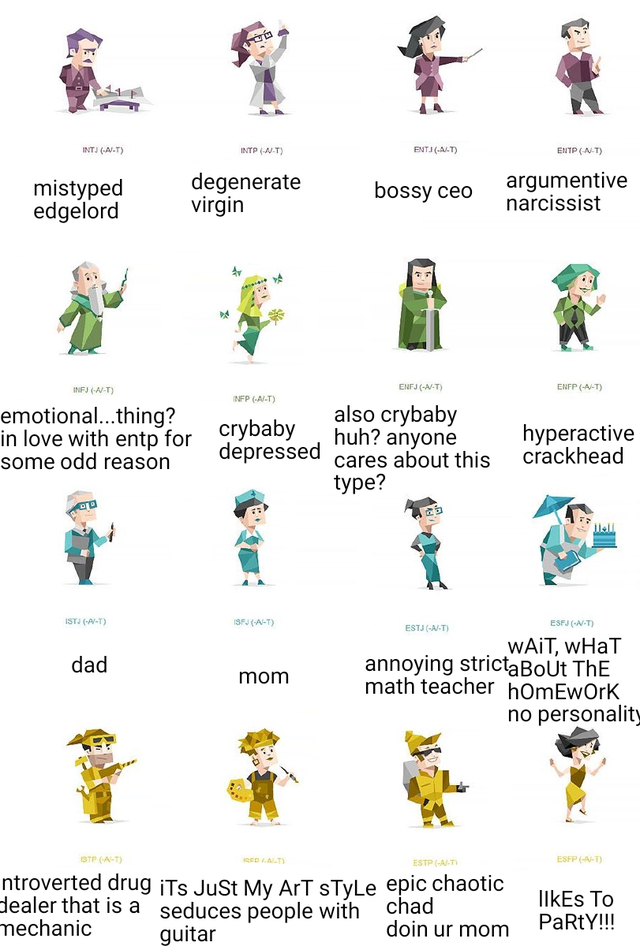
Capricorn: ISTJ
If you’re an ISTJ, you might identify with the zodiac sign of Capricorn. At their best, Capricorns are responsible, goal-oriented individuals who strive to produce their best work in an organized and disciplined manner. At their worst, they can become incredibly self-critical and/or resentful towards anyone who doesn’t meet their high standards.
Besides their boundless ambition and incredible work ethic, both Capricorns and ISTJs tend to value tradition and build their lives around it. If you have a Capricorn in your life, you’ll know they take their relationships seriously, as they don’t want anyone wasting their time.
Aquarius: INTP
Independent and free spirited, Aquarius personalities seem to be closest to INTP types. Like INTPs, Aquarius are deep thinkers who show non-traditional inclinations. Both Aquarius and INTP personalities wish to follow their own individual path, and they are often suspicious of people who enjoy doing things conventionally.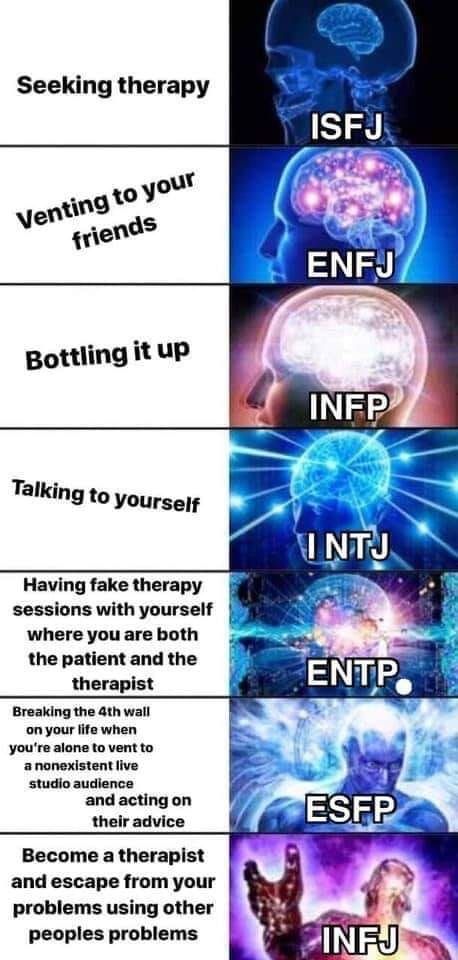
In addition, both Aquarians and INTPs are interested in exploring the world of ideas and abstract thought. Hence, they can often seem detached from others: they need to be alone to think things through. If you have an Aquarius in your life, it’s likely they’re a life-long learner, very socially aware, and/or someone who challenges you to think outside the box.
Pisces: INFP, ENFP
People with this zodiac sign personality are often described as dreamers, and I think they fit XNFPs to a T. After all, both INFPs and ENFPs are Feeler types with a compassionate and idealistic nature.
INFPs may relate more to the creative inner world of a Pisces, whereas ENFPs might see themselves reflected in this zodiac sign’s capacity for flexibility and camaraderie. Still, as free-flowing personalities, Pisces can sometimes use their empathy to tune into other people’s problems so they don’t have to tackle their own. They might also struggle to be assertive for fear of hurting someone’s feelings.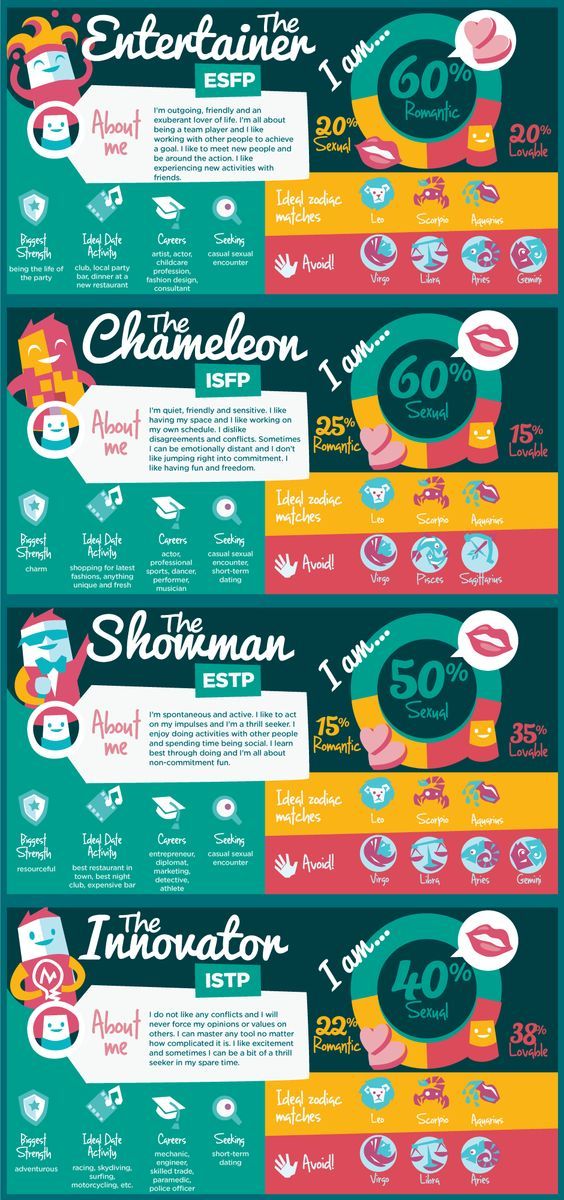
The bottom line
For centuries, people have tried to decipher the meaning behind the stars and astrology continues to fascinate today. Whilst there’s no scientific evidence that the positions of celestial bodies can directly affect us, there’s an interesting overlap between zodiac signs and personality types. When combined, Western astrology and the Myers and Briggs system may help us enhance our understanding of personality.
Your Myers-Briggs Personality Type, According To Your Zodiac Sign
Did you know that two women — without any formal training in psychology, statistics, or psychometrics — created the world's most popular personality test? Thanks to Katharine Cook Briggs and her daughter, Isabel Briggs Myers, we’re able to better understand ourselves through Myers-Briggs personality types, and then correlate them with similar zodiac sign personalities. Before taking a closer look at your particular personality type per the widely recognized assessment tool, here’s some context on the test itself.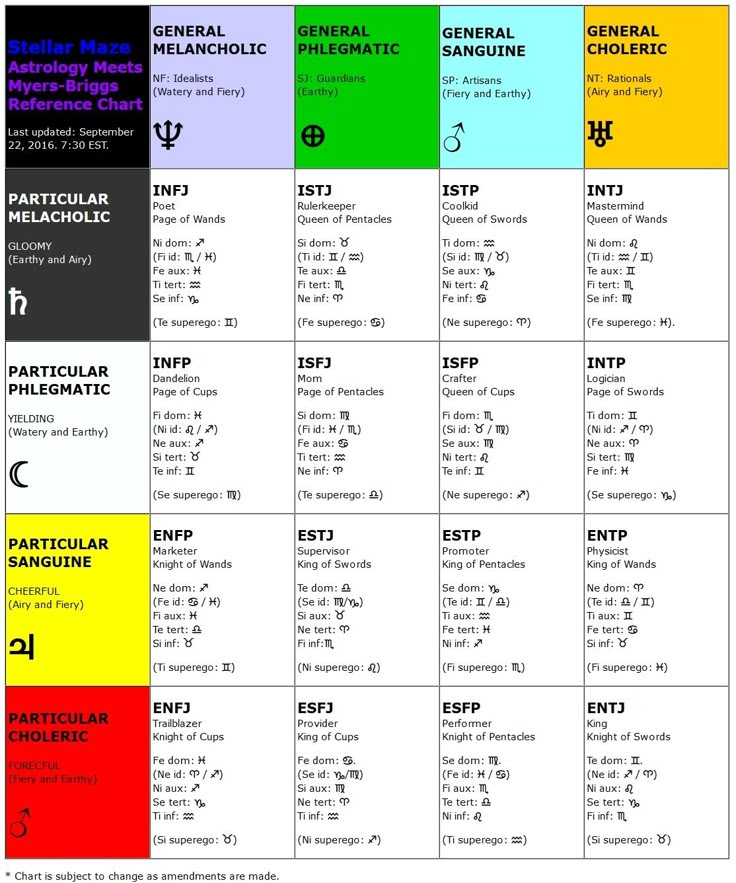
It all began with Briggs and Myers in the early to mid-20th century, according to The Myers-Briggs Company. During an era when the development of a woman's mind was not encouraged, both women were able to make a difference in the way we think about personality types. Inspired by Carl Jung, the MBTI personality test revolves around 16 personality types that are based on the following: extroversion versus introversion, sensing versus intuition, thinking versus feeling, and judging versus perceiving. The Myers-Briggs test can help you understand your internal motivations, just like the zodiac can inform you about your personality based on the positions of the planets when you were born. Both can be helpful tools to guide you through and clarify, for example, what careers might fit you best, your communication style, who you might fit well with romantically, and how you approach life in general.
Of course, the most important thing to remember is that all personality types are equal.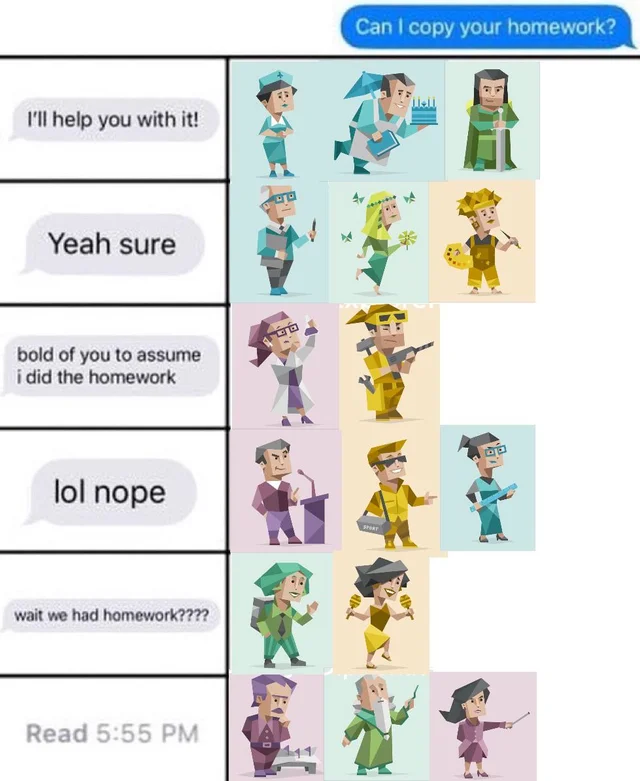 And while your zodiac sign doesn’t necessarily predict your Myers-Briggs type, there are some shared traits between MBTI and zodiac signs that make them very alike. With that being said, these are the MBTIs most similar to zodiac personality types.
And while your zodiac sign doesn’t necessarily predict your Myers-Briggs type, there are some shared traits between MBTI and zodiac signs that make them very alike. With that being said, these are the MBTIs most similar to zodiac personality types.
You are an extroverted, intuitive feeler who's quick to judge, Aries. In fact, according to MyersBriggs.org, ENFJs can also act as catalysts for individual and group growth, which is so appropriate for the first sign in the zodiac. Like Aries, an ENFJ — standing for extroverted, intuitive, feeling, and judging — tends to have strong ideas and values, as well as a deep sense of loyalty and caring for friends and family.
Taurus: ISFJSlow and steady wins the race, Taurus. Your Myers-Briggs personality type stands for introverted, sensing, feeling, and judging. Also, ISFJs are committed and steady in meeting their obligations, per MyersBriggs.org, which is so you.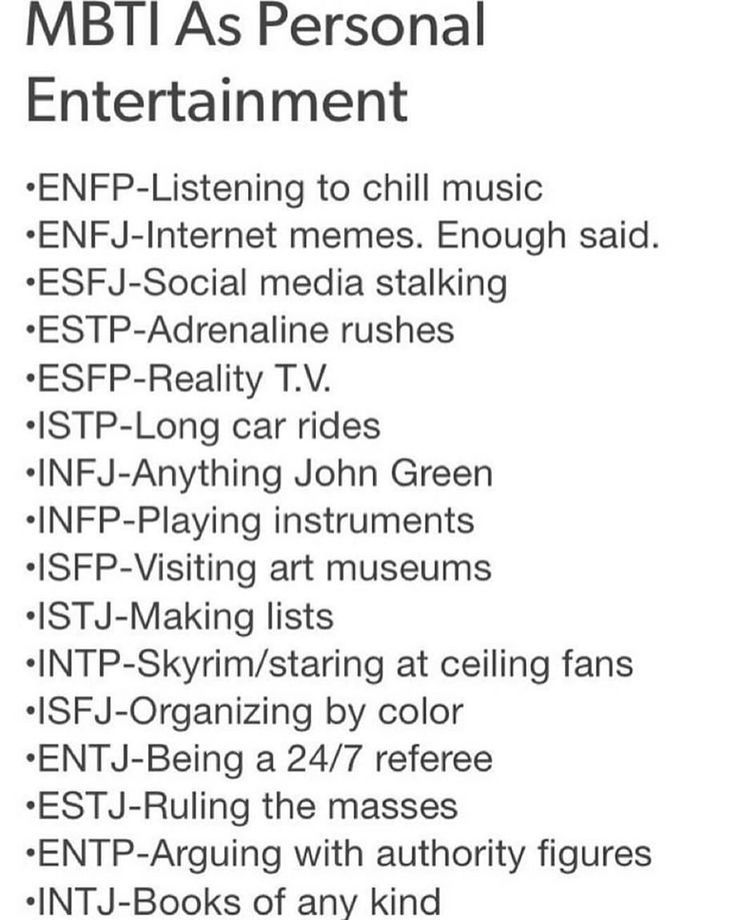 In the same way that a Taurus has a distinctive loving demeanor and commitment to their loved ones, so too does an ISFJ. At the same time, you hold true to your beliefs even to the point of stubbornness (hello, feeling and judging).
In the same way that a Taurus has a distinctive loving demeanor and commitment to their loved ones, so too does an ISFJ. At the same time, you hold true to your beliefs even to the point of stubbornness (hello, feeling and judging).
TBH, you're more of an ambivert than anything else, but this Myers-Briggs personality type pretty much sums it up. If we consider the description on MyersBriggs.org, INTJs can see patterns in external events and develop long-range explanatory perspectives. What does that mean, Gemini? You're brilliant. Nicknamed the “architect,” this MBTI is self-confident and hard-working, but they (like Gemini) can come across as judgmental and insensitive sometimes.
Cancer: INFPYou're an emotional being, Cancer. So much so that your Myers-Briggs personality type keywords stand for introverted, intuitive, feeling, and perceiving. According to MyersBriggs.org, INFPs want to help people fulfill their potential, which totally speaks to the nurturer in you.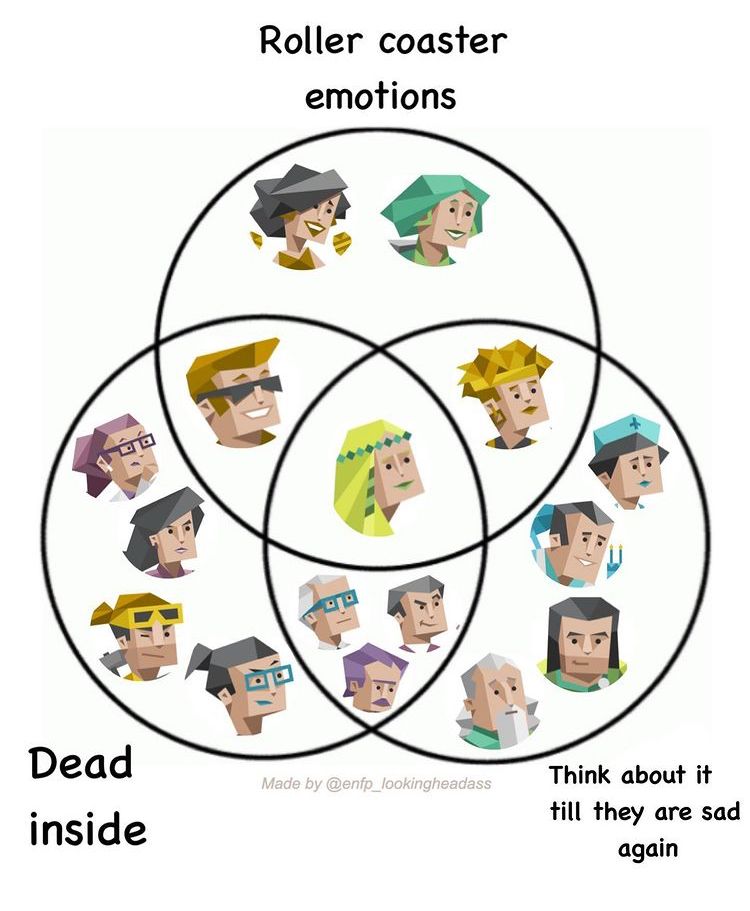 Like Cancers, an INFP brings a caring and creative approach to everything in life, and they find themselves having profound emotional responses to art, nature, and music. And above all else, you’re blessed with the gift of empathy.
Like Cancers, an INFP brings a caring and creative approach to everything in life, and they find themselves having profound emotional responses to art, nature, and music. And above all else, you’re blessed with the gift of empathy.
Your heart doesn't fit in your chest, Leo. And despite your ego-driven tantrums every now and then, you love spreading the love. Period. An ENFP wants a lot of affirmation from others and readily gives appreciation and support, per MyersBriggs.org. You tend to go for big ideas and actions that are propelled by a strong sense of hope and your love of giving to others. Like a Leo, an ENFP Myers-Briggs type would make a stellar actor, musician, or teacher.
Virgo: ISTPShutterstockYou love putting in the work, Virgo. Your Myers-Briggs personality type keywords stand for introversion, sensing, thinking, and perceiving. According to MyersBriggs.org, ISTPs are interested in cause and effect, organize facts using logical principles, and value efficiency.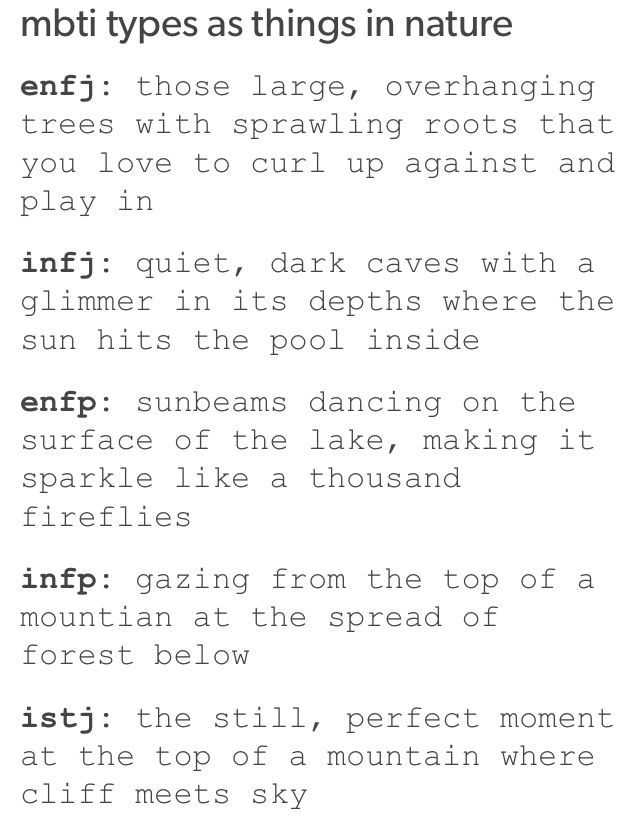 Known as the “virtuoso,” an ISTP engages in life with intellectual wonder and personal skill, much like a Virgo. If anyone is helpful at figuring out what to do in a crisis, it’s you and your insightful observations and ability to think on your feet.
Known as the “virtuoso,” an ISTP engages in life with intellectual wonder and personal skill, much like a Virgo. If anyone is helpful at figuring out what to do in a crisis, it’s you and your insightful observations and ability to think on your feet.
It’s all about love, Libra. After considering all 16 personality types, ISFP (introversion, sensing, feeling, and perceiving) wins by a long shot. ISFPs dislike disagreements and prefer to enjoy the moment, per MyersBriggs.org. Don't you agree? After all, an ISFP is likely a true artist in the sense that they hate being boxed in and have a passion for discovery and understanding.
Scorpio: INFJYou're an excellent judge of character, Scorpio. Your personality type perfectly embodies your desire to merge with another mind, body, and soul. Aside from wanting to learn what motivates others, INFJs seek meaning in relationships and possessions, per MyersBriggs.org. Nicknamed the “advocate,” you engage in life with deep thoughtfulness and imagination.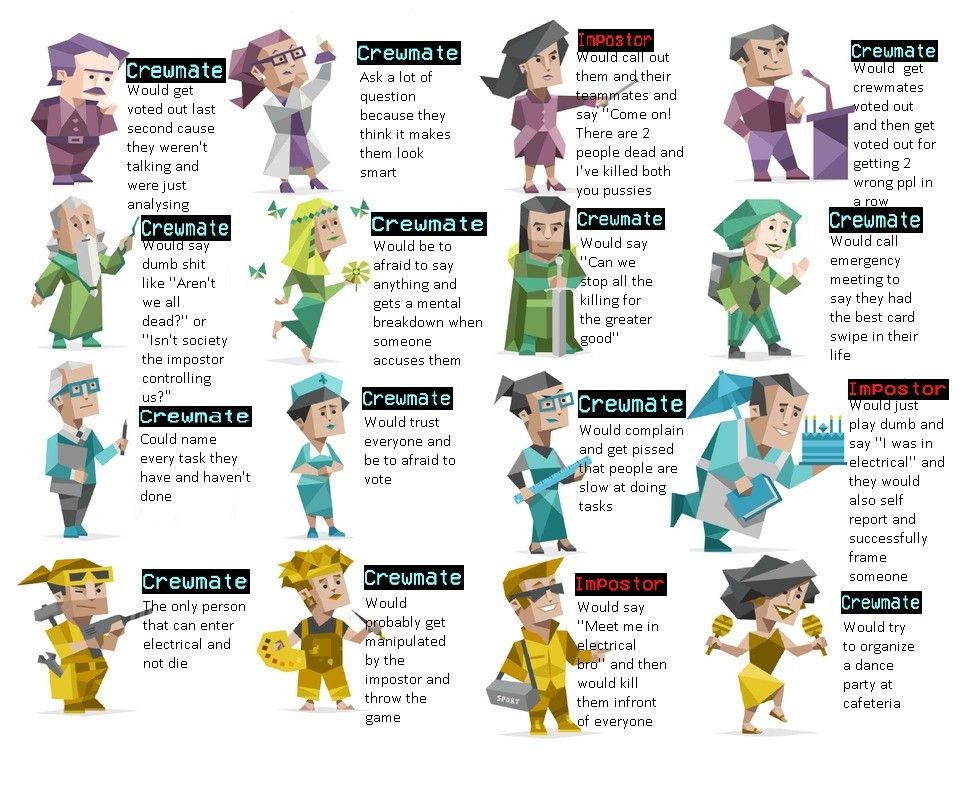 And just like a Scorpio, an INFJ knows how to trust their gut and make spot-on judgements of people and scenarios.
And just like a Scorpio, an INFJ knows how to trust their gut and make spot-on judgements of people and scenarios.
Carpe diem, Sagittarius. Your personality type stands for extroversion, sensing, feeling, and perceiving. TBH, the description on MyersBriggs.org has your name written all over it: ESFPs are outgoing, friendly, and exuberant lovers of life. Like a Sagittarius, an ESFP revels in life’s vibrant experience and loves exploring the unknown. It’s no wonder you’re known as the “entertainer.”
Capricorn: ISTJReach for the stars, Capricorn. Intuition, sensing, thinking, and judging dominate your personality, and it’s not surprising at all. According to MyersBriggs.org, ISTJs are known for being practical, matter-of-fact, realistic, and responsible. The “logistician,” you have a rational outlook on life and can carry out anything you deem possible. ISTJs and Capricorns share a sense of organized, goal-oriented ambition.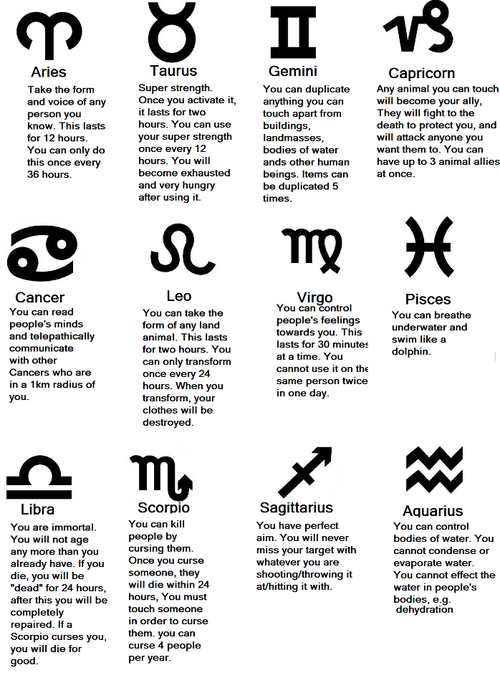
You have a sparkling mind, Aquarius. Your personality-type keywords stand for extroversion, intuition, thinking, and perceiving, and it perfectly describes your eclectic nature. ENTPs generate conceptual possibilities and then analyze them strategically, per MyersBriggs.org. Like an Aquarius, an ENTP is boldly creative and unafraid to think outside of the box or break some rules as a way to get farther in life — simply because it’s fun for them.
Pisces: ESFJYou're beautifully complex, Pisces. Your mutable personality makes it challenging to put you in a box, but your personality type perfectly suits you. According to MyersBriggs.org, ESFJs are warmhearted and conscientious; they seek harmony within their environment. Emotionally aware and gracious, Pisces are much like ESFJs in that they are grounded in sympathy toward others, and they bring creativity and imagination to any situation.
For all 16 Myers-Briggs personality types, visit MyersBriggs.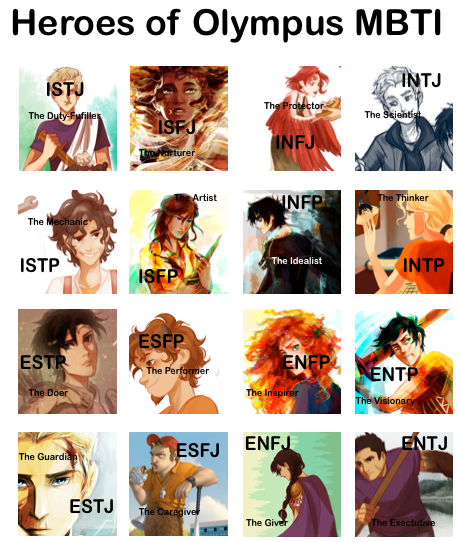 org.
org.
This article was originally published on
Astrology, typology and statistics: scinquisitor — LiveJournal
For several days now I have been discussing a curious study concerning astrology.
VKontakte has an application called “ Unique test - WHO ARE YOU? Socionics ”, installed by more than 500,000 users of the social network. The respondent is asked a series of questions about their introversion/extroversion, use of feelings/intuition, logic/ethics, and perception/judgment. Based on the responses, people are divided into 16 psychological types, depending on the predominance of a tendency to a particular element from each pair of listed alternatives. Just in case, I will immediately emphasize that socionics has nothing to do with serious science, which, however, is not important in the context of this study. Later I will say a few words about the typology itself, but first about the results.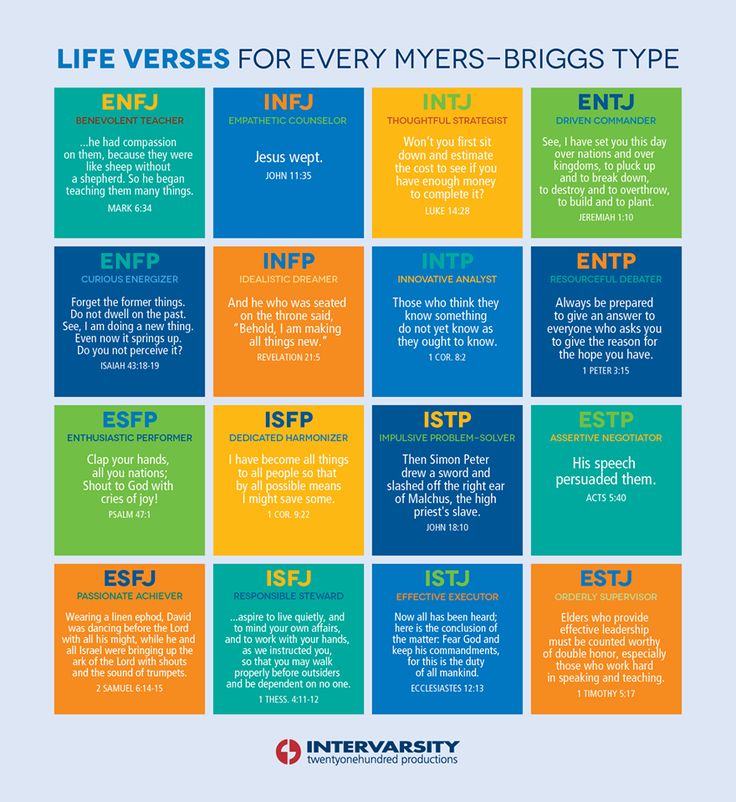
In addition to answering questions, the application has access to some user data, including date of birth. The author of the study collected data on the psychotypes and dates of birth of the respondents and showed that there are significant deviations between the observed and expected number of people with certain "psychotypes" and zodiac signs (Table 1).
Table 1. The predominance of psychotypes among representatives of various zodiac signs.
For example, the number of Capricorn women with ISTJ type (introversion > extraversion, sensations > intuition, logic > ethics, judgments > perceptions) is 1.5 times more than expected. The expected number of people with a given psychotype and zodiac sign is calculated as follows: it is the product of the number of people in the sample, the proportion of people with a given psychotype and gender, and the proportion of people with a given zodiac sign.
First I checked to see if these deviations were random noise.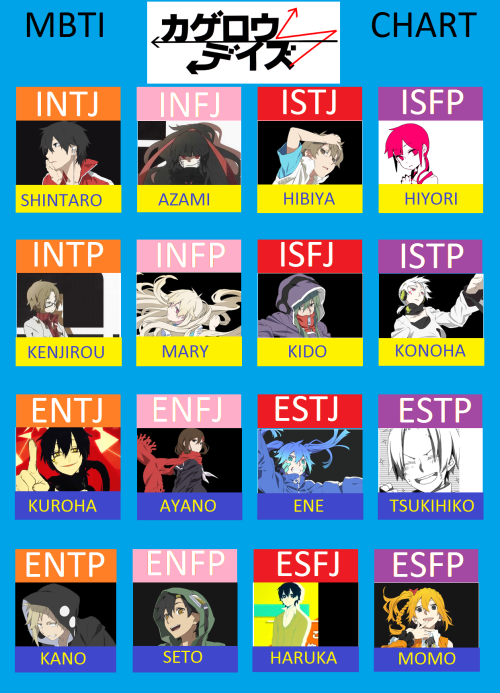 To do this, I took the original data, filtered it a bit and mixed the signs of the zodiac between people from the sample many times, calculating which deviations of the observed from the expected appear by pure chance and how often. With a probability of at least 1% with such mixing, one can observe deviations of the observed from the expected by 22% for some combinations of psychological type, gender and zodiac sign. But there are larger deviations in the data, that is, deviations that are not due to random causes. Including the mentioned predominance of the ISTJ type among Capricorns - the most "strong" observed pattern. In addition, I checked whether the author made any mistakes in the calculations: apparently not.
To do this, I took the original data, filtered it a bit and mixed the signs of the zodiac between people from the sample many times, calculating which deviations of the observed from the expected appear by pure chance and how often. With a probability of at least 1% with such mixing, one can observe deviations of the observed from the expected by 22% for some combinations of psychological type, gender and zodiac sign. But there are larger deviations in the data, that is, deviations that are not due to random causes. Including the mentioned predominance of the ISTJ type among Capricorns - the most "strong" observed pattern. In addition, I checked whether the author made any mistakes in the calculations: apparently not.
The author of the study proposes the following hypothesis: “ some features of a person's psychotype are formed in the process of intrauterine development under the influence of annual hormonal cycles in the mother's body and are the result of adaptation to different types of seasonal activity of people in antiquity ”.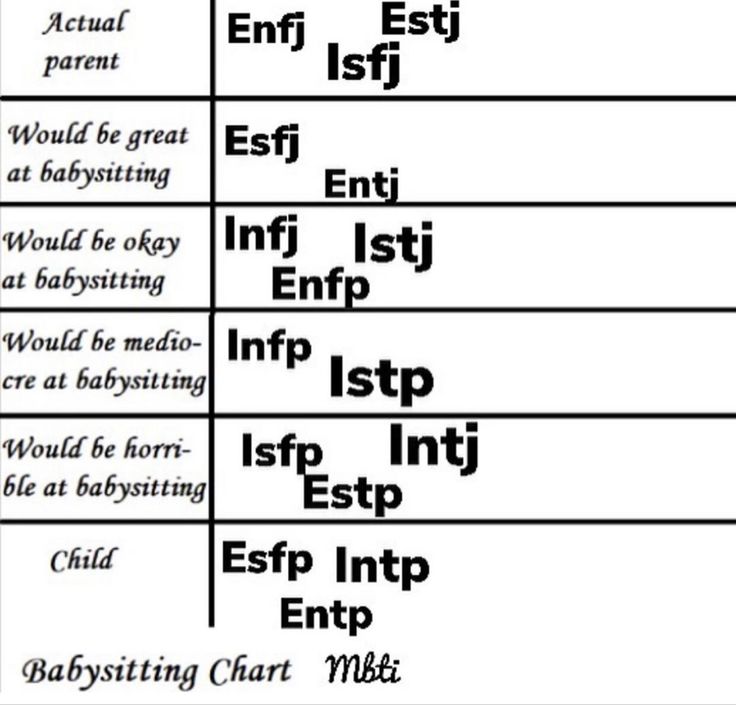
On the one hand, I agree with the author that the season of birth can affect some traits of a person's personality. This has been discussed in detail in two posts relating to astrology here and here.
“ In winter, the ambient temperature is lower, there is less light, shorter daylight hours. The synthesis of substances such as melatonin or vitamin D depends on illumination. A number of diseases, such as rickets, are associated with a significant deficiency of vitamin D, but even a small deficiency can affect the body weight and length of the child's limbs. The season of birth is associated not only with some anthropometric, but also with some neurocognitive features of the development of children, as well as with the quantitative characteristics of a number of biochemical processes, such as interferon synthesis or dopamine consumption. A number of studies have shown that those born in winter are more prone to a number of diseases, such as glioma and meningioma.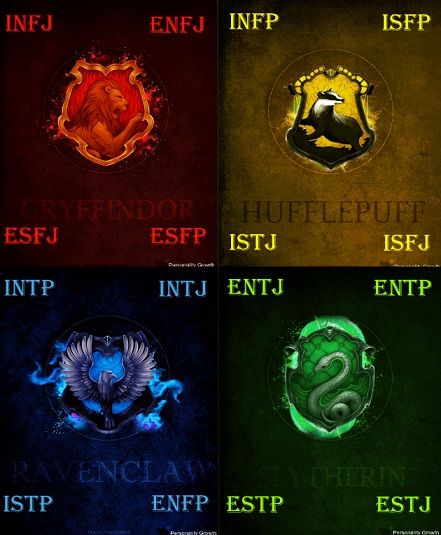 A connection was also found between the season of birth and some psychological traits, in people with certain genotypes, as well as a tendency to suicidal behavior ".
A connection was also found between the season of birth and some psychological traits, in people with certain genotypes, as well as a tendency to suicidal behavior ".
However, it seems to me that in this case we are dealing with a simpler effect.
Consider a simplified model. Let's say we have a sample of 500,000 people. Among them, 42,000 are Capricorns (approximately 1/12) and all psychotypes are approximately equivalent (an unbiased respondent chooses each of the psychotypes with a probability of 1/16). Let's say that 10% of Capricorns knew that they corresponded to the qualities of the ISTJ psychotype from horoscopes. The remaining 90% have never heard of extroverts, introverts and psychotypes, so they indicate their psychotype regardless of the sign. Then among Capricorns, the ISTJ psychotype will be chosen on average:
0.1*42000 + 1/16*0.9*42000 = 4200 + 2362.5 = 6562.5 people
The expected number of Capricorns with the ISTJ psychotype, assuming that the zodiac sign does not affect the psychotype, will be:
1/04 = 2625
And the ratio of the observed number of Capricorns with the ISTJ psychotype to the observed will be:
6562.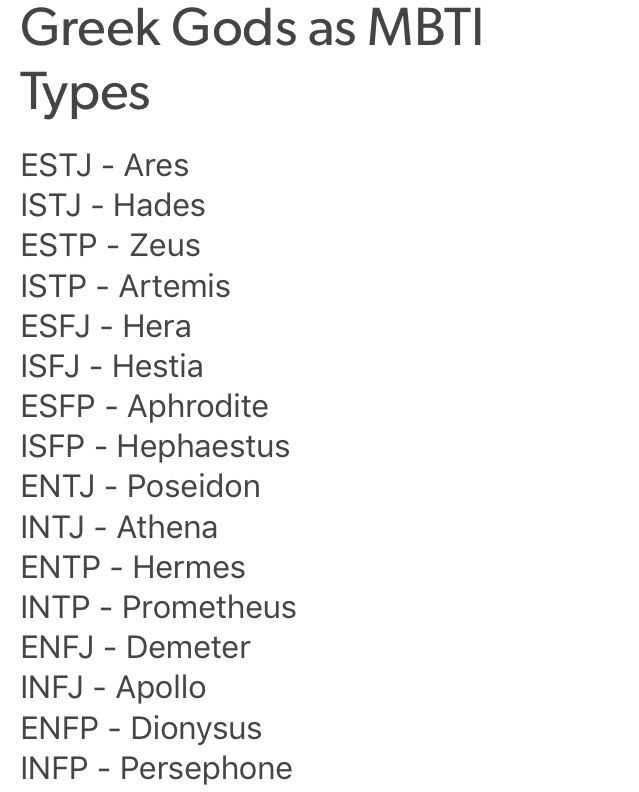 5/2625 = 2.5
5/2625 = 2.5
we did not learn that the expected number of such combinations of sign and type will increase slightly due to the increase in the number of people with type ISTJ under this model, but this will not affect the conclusions much).
But there are only 1.5 times more Capricorns with ISTJ than expected. And this is the most prominent pattern. That is, if 10% of respondents know what personality traits are attributed to their zodiac sign in newspaper horoscopes, we will get a much more pronounced effect than that found in the study under discussion. What should be the minimum proportion of people who know the stereotypical features of their zodiac sign from horoscopes in order to explain all the deviations?
We solve the problem in the opposite direction. Let us designate as X the unknown proportion of Capricorns who know from horoscopes what personality traits are characteristic of Capricorns. We want to get the ratio of the observed to the expected number of Capricorns with one of the psychotypes equal to 1.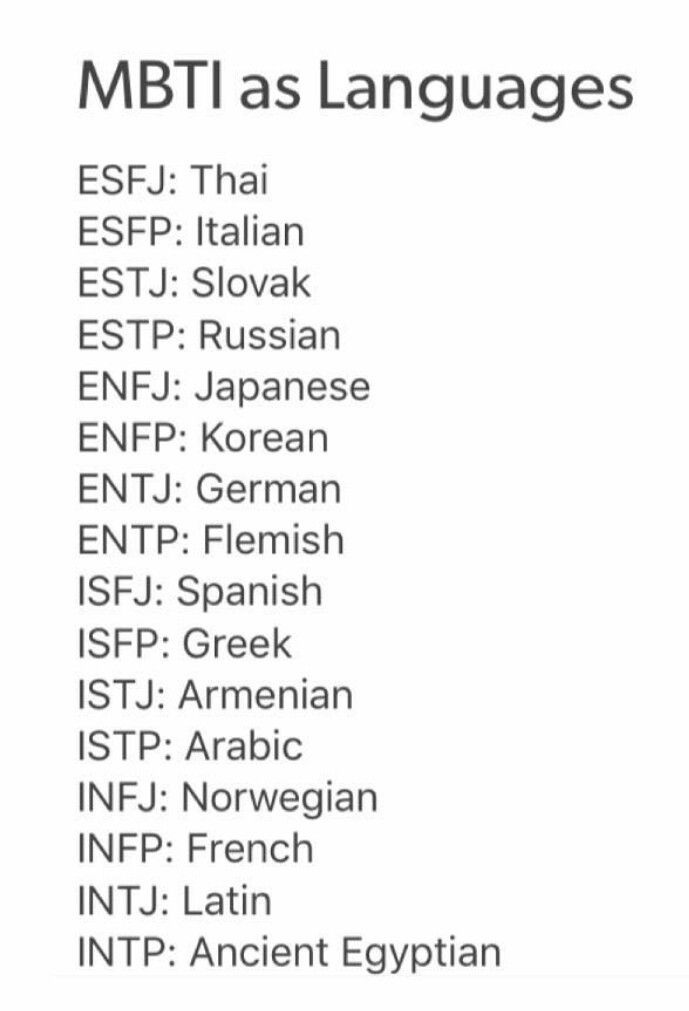 5. Then:
5. Then:
(x*42000 + 1/16*(1 -x)*42000)/2625 = 1.5
42000x + 2625 - 2625x = 3937.5
39375x = 1312.5
x ~ 0.033
to get the most the strong effect observed in the study under discussion is enough for 3.3% of respondents to be seriously interested in horoscopes. Not much, right? In my opinion, this figure is quite small and can be considered plausible.
But is it true that things are written in horoscopes that can incline people reading this horoscope to choose one or another psychological type?
Consider the zodiac sign Pisces. In any horoscope, this is an emotional sign, like other "water" signs. In Google, the query "emotional zodiac sign" generates the following results:
Pisces is an emotional sign. Pisces are dreamy and sensitive. Pisces are connected with the emotional content of life
The query "introvert zodiac signs" gives the following results:
Pisces are introverted . Pisces introverts, intuitives .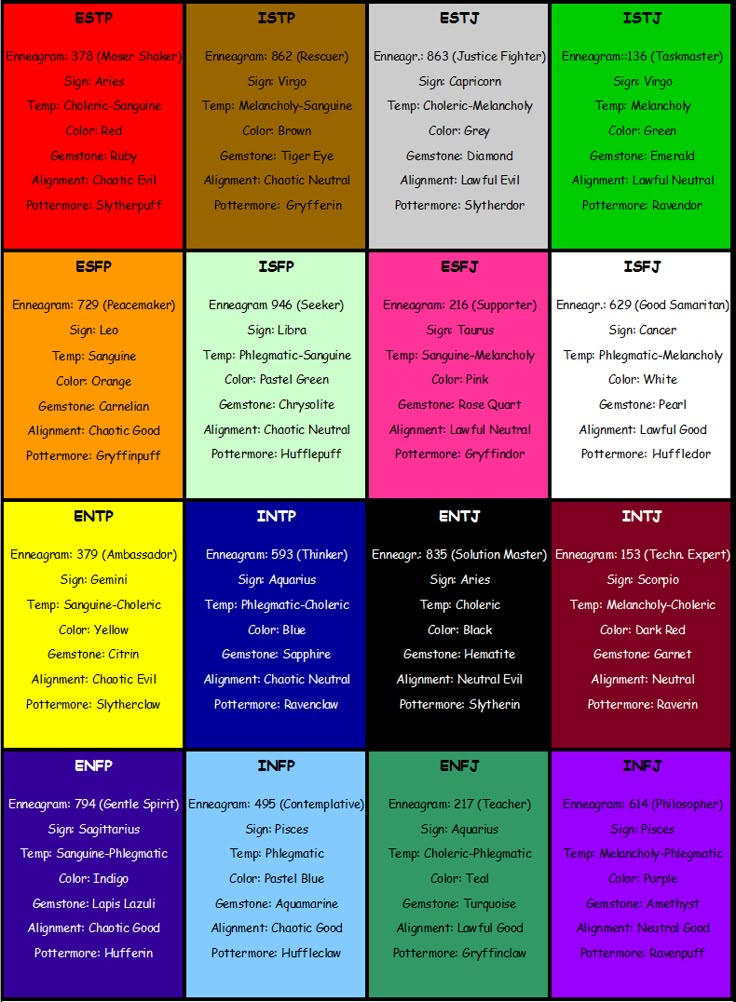
Table 1 shows that among Pisces, although not statistically significant, the INFP type is the most common: introvert, intuition, ethics, perception.
Here is an example of an astrological text that tells us which psychotype to choose if the zodiac sign is known. Source: http://clubs.ya.ru/4611686018427389554/replies.xml?item_no=4696
“ Pisces, Cancer and Scorpio are considered the most intuitively developed signs of the Zodiac. But each of them has a different intuition. In Pisces, it is identical to premonition, in Cancer it is more directed towards family and children, and in Scorpio it is best manifested in moments of danger. Despite the fact that these three water signs are the most intuitive, intuition is common to all signs of the zodiac, although to varying degrees. Fire signs (Sagittarius, Aries and Leo) do not like to pay attention to her, although they often admit that they should have listened to their “inner voice” more. The signs of the Earth (Capricorn, Taurus, Virgo) are almost deaf to its manifestations, they do not believe in premonition, but if it is suddenly justified, they never forget the lesson learned.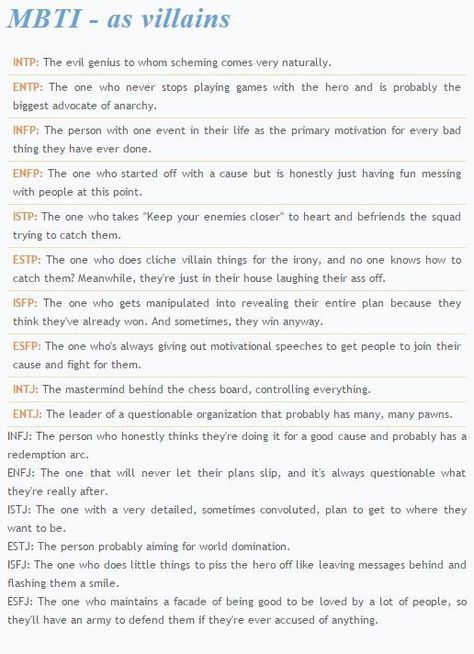 Air signs (Libra, Gemini, Aquarius) do their best to develop intuition and believe in it, often their ability to anticipate events helps them in difficult situations ".
Air signs (Libra, Gemini, Aquarius) do their best to develop intuition and believe in it, often their ability to anticipate events helps them in difficult situations ".
If you look at newspaper horoscopes, you will notice that there are signs of the zodiac that are traditionally considered introverted (Taurus, Capricorn, Cancer, Scorpio, Pisces, Virgo) and extroverted (the rest), social (Gemini, Cancer, Libra, Scorpio , Aquarius, Pisces) and not social (the rest), emotional (Aries, Cancer, Leo, Scorpio, Sagittarius, Pisces) and rational (the rest), etc. This leads to the fact that a person who is seriously interested in astrology and believes in it, can immediately eliminate a number of answers to questions in such an application.I am not fond of astrology and consider it nonsense, but even then I know many stereotypes associated with Taurus, with my zodiac sign.0003
As in the case of Pisces, the ISTJ type correlates well with the stereotypical ideas about Capricorn, set out in numerous newspaper horoscopes.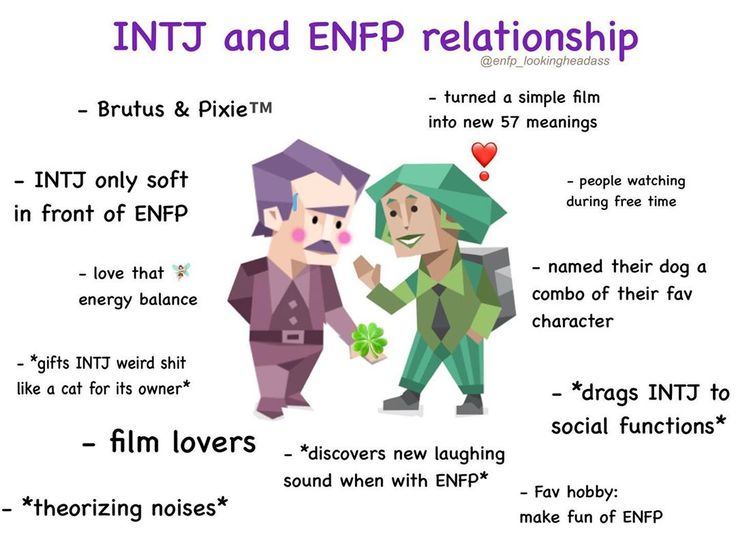 One consequence of my hypothesis would be that among people interested in astrology, there will be stronger differences between observed and expected frequencies.
One consequence of my hypothesis would be that among people interested in astrology, there will be stronger differences between observed and expected frequencies.
As far as I know, women are more interested in astrology and typology than men and read horoscopes more often. This is consistent with the fact that among the participants in the study under discussion, there are about 1.5 times more women than men. Larger samples, as a rule, lead to a decrease in the numerical values of the deviations due to the smaller contribution of random fluctuations. However, the average deviation of the observed from the expected number of respondents with a given zodiac sign and psychological type (for all combinations of signs and types) for women is 10% for men 7%. The largest deviation for women is 1.5, for men 1.37. Do the signs of the zodiac "influence" the psychotype of women more than the psychotype of men? I think no. It's just that women know their horoscopes better.
Finally, the promised few words about typology.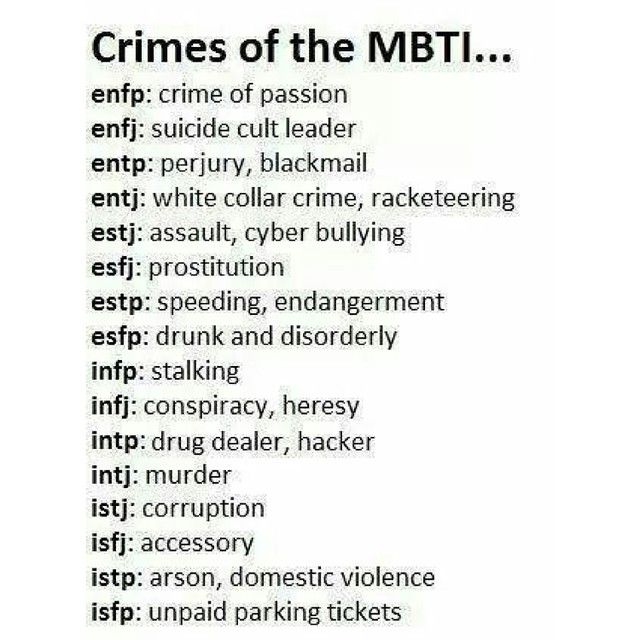 Consider two distributions of the frequency of occurrence of a feature. One sign is the heart rate in living men, the other is the size of the chest of a person (both sexes). The figures below show two graphs. These graphs are invented from the head and have nothing to do with real numbers (therefore, there are no units of measurement on the x-axis, but only arbitrary units of something there), and serve only to illustrate the principle. In the figure on the left, we see that there is one average heart rate value and there are people with some deviations from the average. In the figure on the right, we see two distribution peaks. One corresponds to the norm for one type of people - men. The other is for a different type of people - women. To justify the existence of fundamentally different “types” of people, the distribution of some feature should be approximately like in the picture on the right.
Consider two distributions of the frequency of occurrence of a feature. One sign is the heart rate in living men, the other is the size of the chest of a person (both sexes). The figures below show two graphs. These graphs are invented from the head and have nothing to do with real numbers (therefore, there are no units of measurement on the x-axis, but only arbitrary units of something there), and serve only to illustrate the principle. In the figure on the left, we see that there is one average heart rate value and there are people with some deviations from the average. In the figure on the right, we see two distribution peaks. One corresponds to the norm for one type of people - men. The other is for a different type of people - women. To justify the existence of fundamentally different “types” of people, the distribution of some feature should be approximately like in the picture on the right.
Most of the psychological characteristics of people are distributed as in the picture on the left.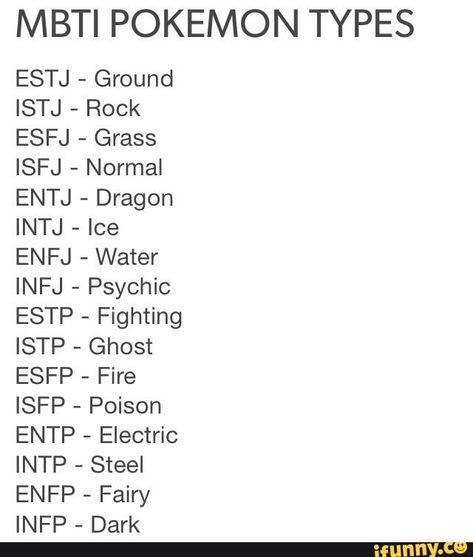 There are different degrees of deviation from one mean value of a feature. That is, by and large, the mentioned psychological “types” of people are absent in nature. These types are created artificially, by drawing arbitrary boundaries, thresholds. And so we are all a little introverts, a little extroverts, we use logic a little, a little intuition, a little ethics, and there are all kinds of degrees of manifestation and combination of these qualities, without pronounced clear boundaries.
There are different degrees of deviation from one mean value of a feature. That is, by and large, the mentioned psychological “types” of people are absent in nature. These types are created artificially, by drawing arbitrary boundaries, thresholds. And so we are all a little introverts, a little extroverts, we use logic a little, a little intuition, a little ethics, and there are all kinds of degrees of manifestation and combination of these qualities, without pronounced clear boundaries.
For example, men and fat men in the right picture are one type. You can draw an arbitrary boundary and say that all men to the right of this boundary are fat, but this boundary, by definition, will not have biological significance. Men just to the left of this border and men just to the right of this border can easily turn out to be more similar on the basis of "breast size" than representatives of the "same type". "Real" types, such as "male" and "female" types will have two different "norms" in relation to breast size due to biological reasons.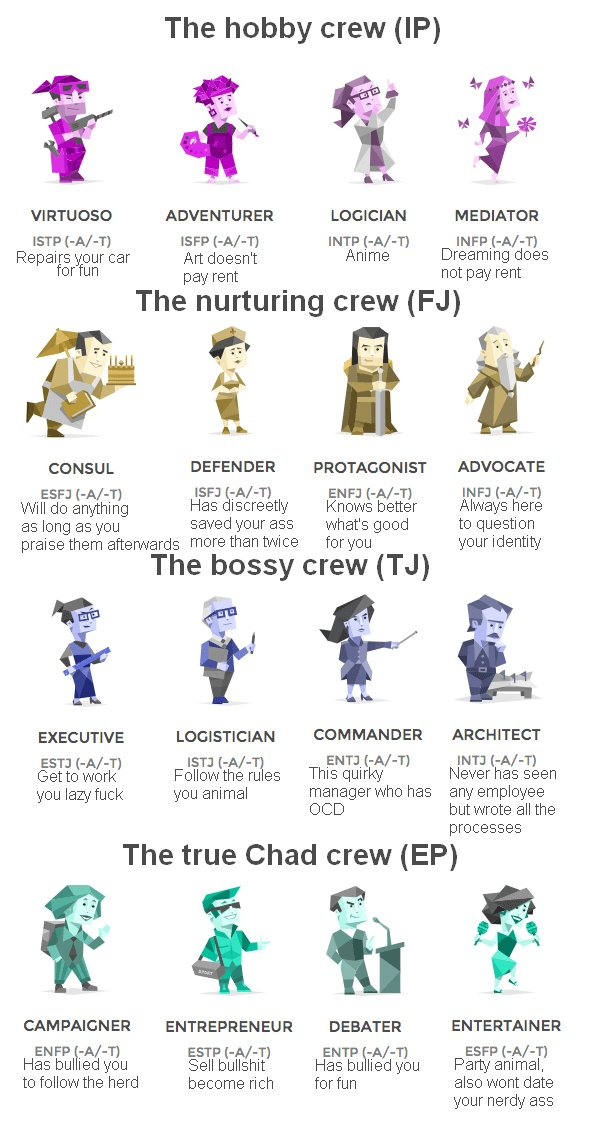
To summarize. The simplest explanation for the observed relationships between socionic types and the zodiac sign of respondents is that a small proportion of respondents read horoscopes and allow this to affect their choice. The research under discussion does not allow at this stage to conclude that confirmation of the astrological relationship between the date of birth and any character trait has been found.
The world's 5 rarest personality types according to Myers-Briggs typology
Trending
When you hear the word "rare", you will most likely imagine someone close to you who is really special to you . Maybe this is your best friend or relative - or maybe you yourself. You know who I'm talking about, people who don't look like anyone else, like they're made of a different fabric. Maybe this unique person has one of the 5 rare personality types that I will tell you about today!
By the way, let me remind you how to "read" the name of personality types in MBTI.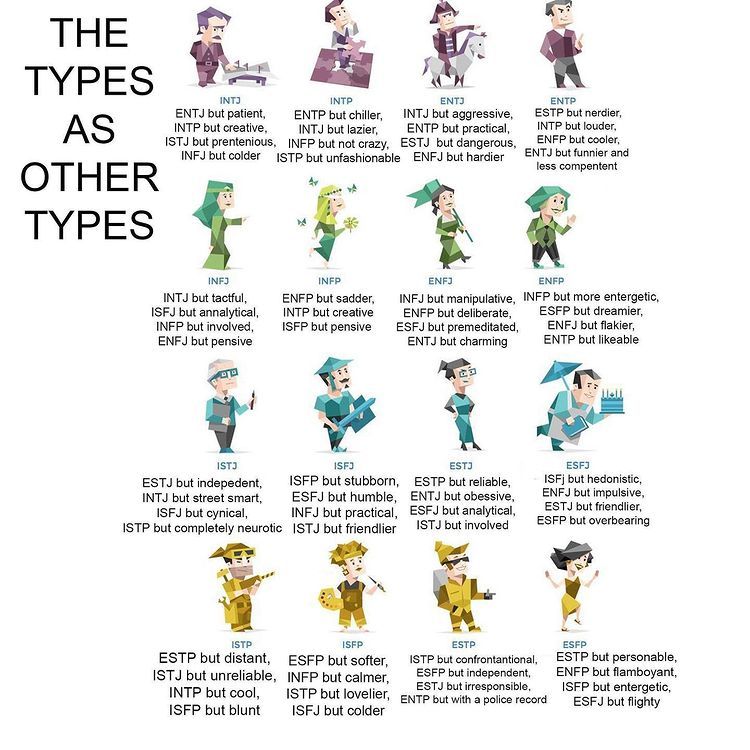 In general, the type is calculated based on what you like or dislike, what you are strong in and what you are a little weak in. Tests are designed to calculate what you are more inclined towards: extraversion (E) or introversion (I) ; sensory (S) or intuition (N) ; think more (T) or feel (F) ; condemn (J) or perceive (P) .
In general, the type is calculated based on what you like or dislike, what you are strong in and what you are a little weak in. Tests are designed to calculate what you are more inclined towards: extraversion (E) or introversion (I) ; sensory (S) or intuition (N) ; think more (T) or feel (F) ; condemn (J) or perceive (P) .
In total, the Myers-Briggs typology identifies 16 individuals whose names are combined from the letters and their meanings above. There are some especially rare in these 16 types, which even in Russia and the world are quite rare. Well, are you ready to look for something special in yourself and others?
ENFJ-“Coach”
🌍 How much in the world: 2.5%
⭐ how much in Russia: 4.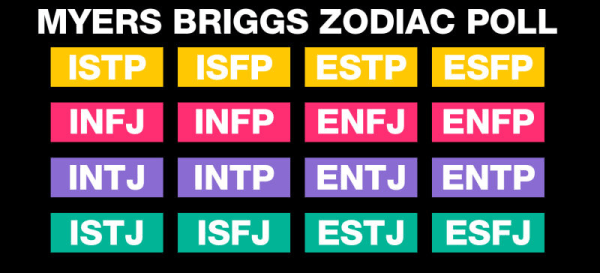 77%
77%
Top-3 countries with maximum countries with a maximum Coaches: Gibraltar (9.40%), Lebanon (9.09%), Fiji (8.94%).
Top 3 countries with the least number of Coaches: Myanmar (Burma) (4.52%), Singapore (4.52%), Latvia (4.61%).
People who are extroverted, intuitive, sensory and rational tend to be a bit unusual and stand out from the crowd. Coaches intuitively feel people, even without words. But what really sets them apart is the use of their empathy. If INFJs use it for the benefit of others, then ENFJs do it and use their abilities for themselves.
Yes, they are happy to help, sincerely, but the Coaches will not forget about themselves. Their charisma and obsession with what they love never go unnoticed, sometimes they can even seem like fanatics. But what really makes ENFJs unique from other types is their special ability to see potential in other people . And, which is also cool, to inspire them and help them achieve their goals.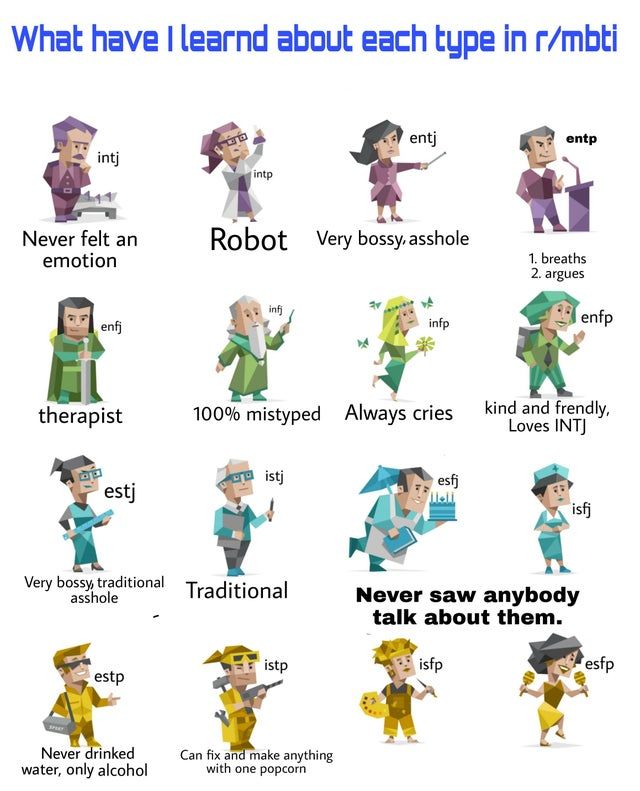
ENTJ - "Commander"
🌍 How many in the world: 2%
⭐ Number in Russia: 4.47%
Armenia (6.90%).
Top 3 countries with the least number of Commanders: Brunei (1.18%), Singapore (1.26%), Faroe Islands (1.28%).
This personality type is distinguished from ENFJ by a special combination of intuition and extraversion. Last Commanders use first, support first. ENTJs are great at networking and meeting new people, combining friendliness and sociability with a rich inner world. At the same time, Commanders also have negative traits, such as a tendency to blame other people for their failures or to be impatient.
Commanders are unique in their insight. They can quickly figure out a problem and find an efficient solution. Whether it's a slow workflow or a lack of a schedule, ENTJs can find a way to transform chaos into harmony to suit their needs.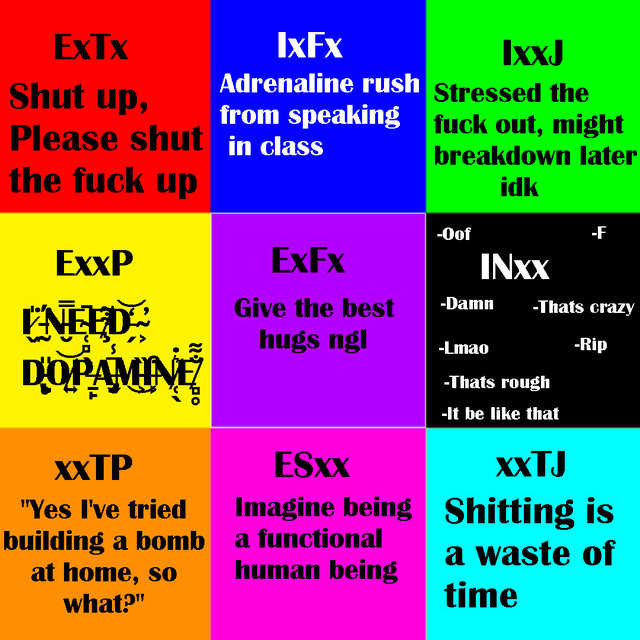 Moreover, the Commander can easily maintain order for a long time.
Moreover, the Commander can easily maintain order for a long time.
INTJ - "Strategist"
🌍 How much in the world: 1-4%
⭐ How much in Russia: 6.66%
Top 3 countries with the most Strategists: Algeria (8.96%), Syria (8.23%), Georgia (7.79%).
Top 3 countries with the least number of Strategists: Northern Mariana Islands (1.65%), Bhutan (1.90%), Brunei (2.02%).
The first introverts on our list who combine a penchant for being a nerd with an excellent problem solver. Yes, they keep a lot in themselves, but this does not prevent them from showing themselves perfectly in work or study. INTJ will never say something just like that, and he is only interested in a conversation when topics that are really interesting to him are raised. And they can’t stand stupid actions and lack of motivation.
Strategists stand out from the crowd a sense of the future and where it will lead humanity.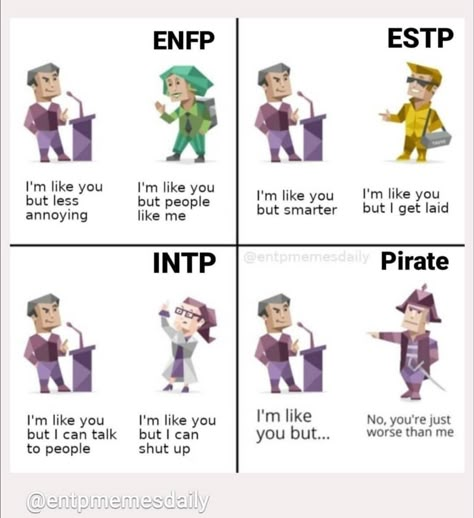 They can predict the development of a particular industry, and very accurately. They use this ability to develop a strategy (the name of the type, you understand) that will help them put what they "see" into action. They say about such people that they are destined to accomplish great things.
They can predict the development of a particular industry, and very accurately. They use this ability to develop a strategy (the name of the type, you understand) that will help them put what they "see" into action. They say about such people that they are destined to accomplish great things.
INTP — "Scientist"
🌍 Share in the world: 3-5%
⭐ Share in Russia: 12.52%
Top 3 countries with the highest number of Scientists: Algeria (14.10%), Morocco (12.97%), Lithuania (12.74%) .
Top 3 countries with the lowest number of Scientists: Haiti (3.41%), Fiji (3.72%), Cameroon (3.78%).
Intuitive thinkers, Scientists are ways to go into themselves headlong, but at the same time it is easy to adapt to changes around and adapt flexibly to the conditions put forward by them. They like to question everything, but this is due to the fact that Scientists love to learn everything new and study the incomprehensible.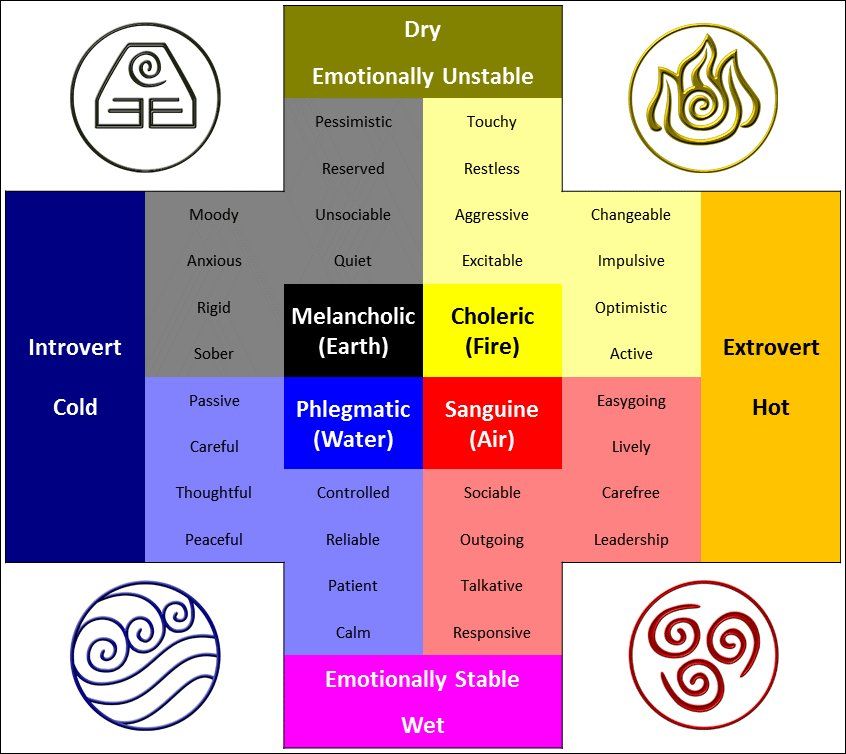 At the same time, INTPs find it difficult to adapt to working in a group, therefore they find ways to remain independent.
At the same time, INTPs find it difficult to adapt to working in a group, therefore they find ways to remain independent.
The superpower of Scientists is the ability to analyze a hopeless situation without panicking. Where others give up, the Scientist systematizes everything, scatters it and finds a way to fix everything or turn it into a positive. The more complex, the better, INTP will be even more interesting to dig and think. The solution to the problem from the Scientist can be striking in its novelty and simplicity. Everyone would like to get such a skill!
INFJ — "Activist"
🌍 Share in the world: 2%
⭐ Share in Russia: 5.82%
Top 3 countries with the highest number of Activists: Portugal (10.03%), St. Vincent and the Grenadines (9.9 %), Puerto Rico (9.73%).
Top 3 countries with the least number of Activists: Afghanistan (4.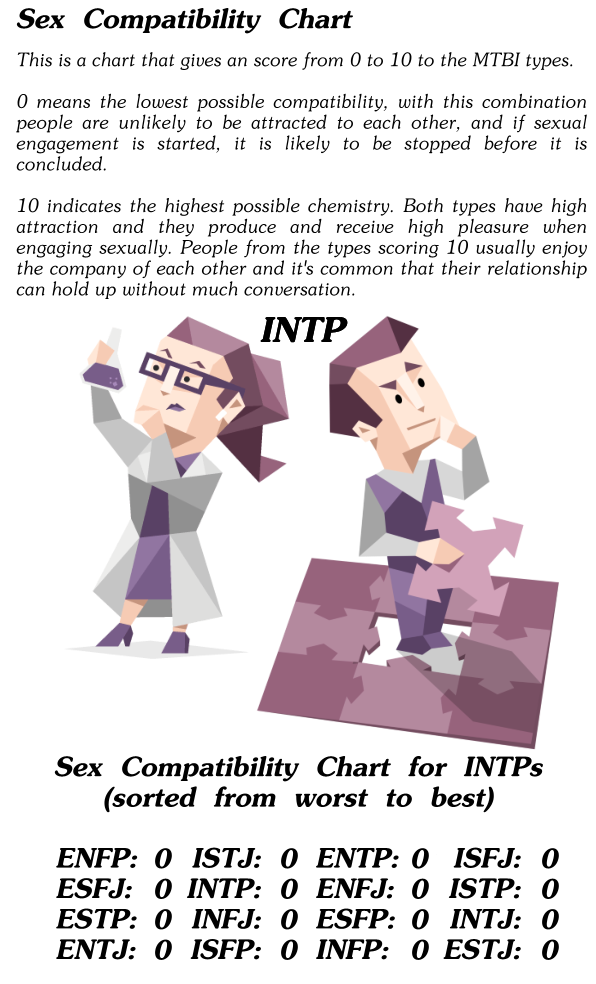 63%), Kyrgyzstan (4.75%), Uzbekistan (4.90%).
63%), Kyrgyzstan (4.75%), Uzbekistan (4.90%).
Well, finally, we got to the rarest type of personality in the world - the Activist. Finding it, calculating it, finding out is quite difficult: these introverts blend in perfectly with the crowd, such is their strategy and the way of the samurai. They can easily pretend to be extroverts in an unfamiliar company if they see it as a benefit. Only at home, the Activist will allow himself to be a real introvert, because only those close to him fully and completely know about their features.
Not without reason did we mention the ease with which Activists can blend in with the crowd. The fact is that this gift from above helps INFJ easily put himself in the place of other people , play the situation in different ways, looking for the best scenario. Yes, it is very difficult for someone to see and understand both sides of the conflict, but Activists are ideal negotiators, so they feel great. The main thing for them is to keep the peace.